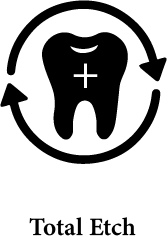Renew Universal




![]()
![]()
![]()
![]()
![]()
![]()
![]()
![]()
![]()
![]()
![]()
![]()
![]()
![]()
![]()
₹1,267.86
FAQs
As they are compatible with various etching techniques and dental materials, there is no need for numerous products and steps during the application process, so it's feasible for the operators.
Like the other bonding agents, the 7th generation bonding agent should be kept in a cool, dry place and away from direct sun exposure.
In etching usually, phosphoric acid is used, which helps in roughening the enamel surface and the bonding process further creates a micromechanical bond between the tooth and adhesive. This all leads to a long-lasting bond and successful restorations.
Yes, the universal agents improve the clinical results as they provide strong adhesion to a variety of dental materials thereby reducing the chances of failure and errors.
5th-gen dental bonding agents are majorly used in direct restorations which can be used in indirect restoration too given the specialized tools and techniques being followed.
Of course, you can use it with both of the restorations as universal agents are meant for all kinds of restorations due to their versatility and convenience.
Yes, however, it is not recommended as bonding agents are the ones that help in creating a strong bond between the material and the tooth. The agents also help in improving the longevity of restoration along with preventing cases of recurrent cavities, premature failure, etc.
Universal agents are a one-stop solution for restorations as they can be used with different etching techniques (total-etch, self-etch, and selective-etch).
A 5th-gen bonding agent is both a primer and adhesive in one bottle. Etching is done separately and the 5 generations help in effective application as compared to the old generations.
Universal bonding agents make the bonding process less complex by being compatible with various etching techniques and materials, reducing the need for multiple steps.











